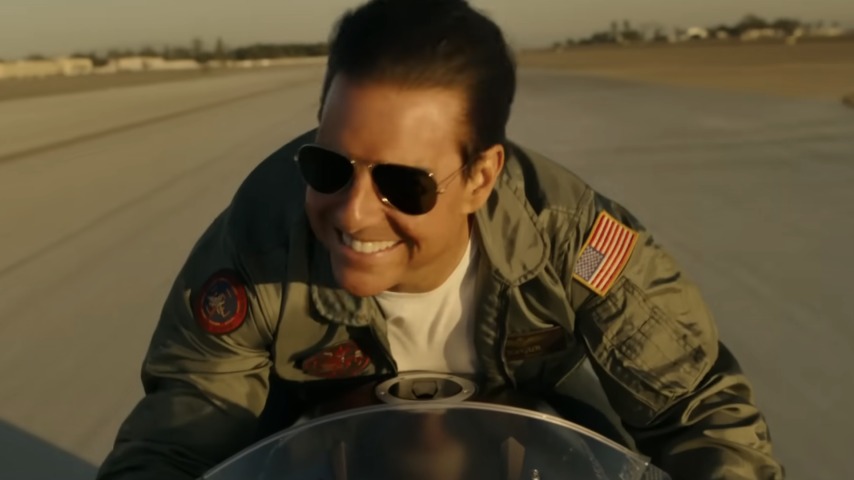Paramount has taken a page from Pete “Maverick” Mitchell’s own playbook today, and gone on the attack: The freshly acquired entertainment giant has just launched a countersuit against Shaun Gray, cousin of credited Top Gun: Maverick screenwriter Eric Warren Singer, alleging that even if Gray could prove he wrote a pretty decent chunk of the movie—as he’s been alleging for the last few months—all it would prove is that he’d been violating the company’s copyright by doing so.
The facts of this legal kerfuffle—which, owing to its high cousin-based content, we’ve come to think of as the “Cousin Fight,” even though Singer and Gray haven’t taken any legal action against each other as of yet—are a little tricky to break down. What seems to have happened is that, when Singer (a long-time Hollywood writer who co-wrote American Hustle) was brought on by director Joseph Kosinski as the second writer to officially work on Maverick, he also brought on Gray to help him flesh things out and write several scenes. (Gray’s mostly credited as a visual effects artist, but he does have one major writing credit—on Australian Apple TV+ show Shantaram, which Singer co-created.) During their collaboration, Gray reportedly contributed a number of major scenes that ended up surviving the hand-off to the next writer in the chain, including the opening action sequence where Maverick ends up blowing up his fancy super-plane because he just can’t shake that dang need for speed.
Thing is, Hollywood studios really don’t like it when screenwriters don’t tell them that they’ve, say, unofficially hired their cousin to help them write their movies, mostly because it leads to legal troubles exactly like this one: Gray sued Paramount a few months back, alleging that, because he’d never signed a contract with the studio, he’d also never signed over any of his ownership rights to the script. Back in July, a judge shot down Gray’s attempt to get legal co-ownership of the script (and an automatic chunk of its profits), but left a door open for suing the studio for copyright infringement—presumably what Paramount itself is now trying to shut down with this countersuit.
Because Paramount’s lawyers are corporate movie studio lawyers, their response to Gray basically concedes none of the assertions in his original complaint. (About the only thing they’ll allow is that Gray, Kosinski, and Singer were in story meetings together, and that Gray has registered the scenes in question with the U.S. Copyright Office.) When you get down to the company’s counterclaims, though, they make the somewhat odd assertion that if Gray did write the material that Paramount then turned into a very successful movie, he did so while playing with Paramount’s toys without their permission, and was thus committing copyright infringement. (That is, using characters like Maverick, which the studio owns, and building off of earlier drafts of the Maverick screenplay… which the studio owns. So he’s actually the one infringing them—if he actually wrote those scenes, which Paramount doesn’t admit. Isn’t IP law interesting?) They’re also suing him for fraud, on the more easy-to-follow argument that, by not disclosing his role on the writing team, and only trying to profit off of it years later, after the movie made a billion dollars, he was attempting to execute a shakedown of the studio.
For what it’s worth, Gray has said he and Singer didn’t disclose his role in co-writing the script because he was worried Paramount would yank the deal entirely if it was presented as part of a writing team. (A rare point of agreement between him and Paramount, which has said through lawyers that, had it known about any of this before the movie was shot, it would have ordered Singer not to work with his cousin, and excised any material Gray wrote before handing it off to another writer.) Singer, meanwhile, has stayed entirely silent on the topic, although Gray’s lawyer put out a statement today accusing the credited author of creating a “secret deal” with Paramount behind his cousin’s back.

 Keep scrolling for more great stories.
Keep scrolling for more great stories.
